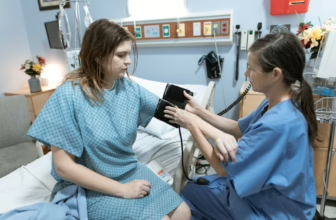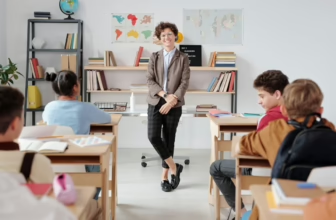As you explore opportunities in healthcare and social services, discover how combining education with accessibility awareness can transform both your career and the lives of others. Whether you're managing a disability, seeking career advancement, or passionate about helping others, this guide illuminates the path to achieving your goals while maintaining work-life balance.
The landscape of healthcare and social services is evolving rapidly, creating unprecedented opportunities for those who want to make a difference. With technology breaking down traditional barriers to education and employment, there's never been a better time to pursue your dreams while advocating for accessibility and inclusion.
Bridging Education and Accessibility
Today's educational landscape offers numerous pathways for professional development. Many aspiring healthcare professionals are discovering that pursuing an online social work degree provides the flexibility needed to balance personal commitments with career advancement.
These innovative programs, supported by cutting-edge learning technologies and personalized support systems, particularly benefit individuals with disabilities or chronic conditions, as they can learn at their own pace and in comfortable environments while maintaining their health routines and medical appointments.
The Power of Inclusive Healthcare Education
Creating Accessible Learning Environments
Educational institutions are increasingly recognizing the importance of universal design in their online programs. From screen reader-compatible content to flexible deadlines, these accommodations ensure that everyone has an equal opportunity to succeed in their chosen field. Key accessibility features include:
- Customizable text sizes and contrast settings
- Audio descriptions for visual content
- Alternative format materials
- Extended time accommodations for assignments
- Flexible attendance policies
Technology as an Enabler
Modern learning management systems incorporate various accessibility features, making education more attainable for students with different needs. Virtual classrooms, closed captions and adaptive technologies have revolutionized how we learn and interact in educational settings. Recent technological advances offer:
- AI-powered transcription services
- Voice command navigation
- Interactive simulation tools
- Mobile-friendly platforms
- Real-time collaboration tools that accommodate various learning styles
These innovations ensure that students can engage fully with course materials regardless of their physical location or specific accessibility needs.
Building a Support Network
Finding Your Community
Connecting with peers who share similar experiences can provide invaluable support throughout your educational journey. Online forums, student groups and professional networks offer platforms for sharing resources, advice and encouragement. These virtual communities often become lifelong support systems, offering:
- Regular virtual meetups and study groups
- Shared resource libraries
- Peer-to-peer tutoring opportunities
- Social media support groups
- Accessibility advocacy initiatives
Professional Mentorship Opportunities
Many programs now include mentorship components, pairing students with experienced professionals who understand the unique challenges faced by individuals with disabilities in healthcare settings. These mentorship relationships often extend beyond graduation, creating lasting professional connections and career development opportunities. Mentors can provide:
- Career guidance specific to accessibility needs
- Industry networking introductions
- Workplace accommodation strategies
- Professional development planning
- Leadership development support
Practical Applications in Healthcare Settings
Implementing Inclusive Practices
Healthcare professionals with personal experience navigating accessibility challenges bring unique perspectives to their work. This firsthand knowledge often translates into more empathetic and effective care delivery.
Understanding the nuances of living with disabilities or chronic conditions enables these professionals to anticipate and address barriers that might otherwise go unnoticed. Their insights help create more welcoming and accessible healthcare environments, from improving physical spaces to developing more inclusive communication strategies.
Advocacy Through Experience
Your journey can inspire others and contribute to positive changes in healthcare accessibility. Many graduates find themselves naturally advancing into advocacy roles, combining their professional expertise with personal insight.
Through their work, they influence institutional policies, mentor emerging professionals and shape the future of healthcare delivery. Their advocacy extends beyond individual patient care to system-wide improvements in accessibility and inclusion.
Career Development Strategies
Flexible Career Paths
The healthcare and social services sectors offer diverse opportunities for professionals with varying abilities and schedules. Remote work options, part-time positions and consultancy roles provide alternatives to traditional full-time employment.
The growing acceptance of flexible work arrangements has opened new doors for professionals who require accommodations or prefer non-traditional schedules. Many organizations now recognize that diversity in working styles and arrangements leads to better patient outcomes and more innovative solutions.
Continuing Education
Professional development doesn't end with graduation. Many organizations offer specialized certifications and training programs designed to accommodate different learning styles and accessibility needs.
These opportunities allow professionals to stay current with evolving best practices while advancing their careers at a pace that works for them. The rise of micro-credentials and modular learning programs has made continuing education more accessible than ever.
Looking Forward
The future of healthcare education and service delivery continues to evolve, with accessibility and inclusion at its core. As more professionals with diverse abilities enter the field, they bring valuable perspectives that enhance patient care and workplace culture. The integration of universal design principles and adaptive technologies is transforming both educational and clinical settings, creating more opportunities for meaningful participation and contribution.
Your experiences and challenges can become powerful tools for creating positive change in healthcare settings. By pursuing education that aligns with your needs and advocating for inclusive practices, you're not just advancing your career – you're helping to build a more accessible and understanding healthcare system for everyone. This transformation extends beyond individual success stories to create lasting systemic change that benefits future generations of healthcare professionals and the patients they serve.
Follow me down the rabbit hole!
I'm Alice and I live with a dizzying assortment of invisible disabilities, including ADHD and fibromyalgia. I write to raise awareness and end the stigma surrounding mental and chronic illnesses of all kinds.








